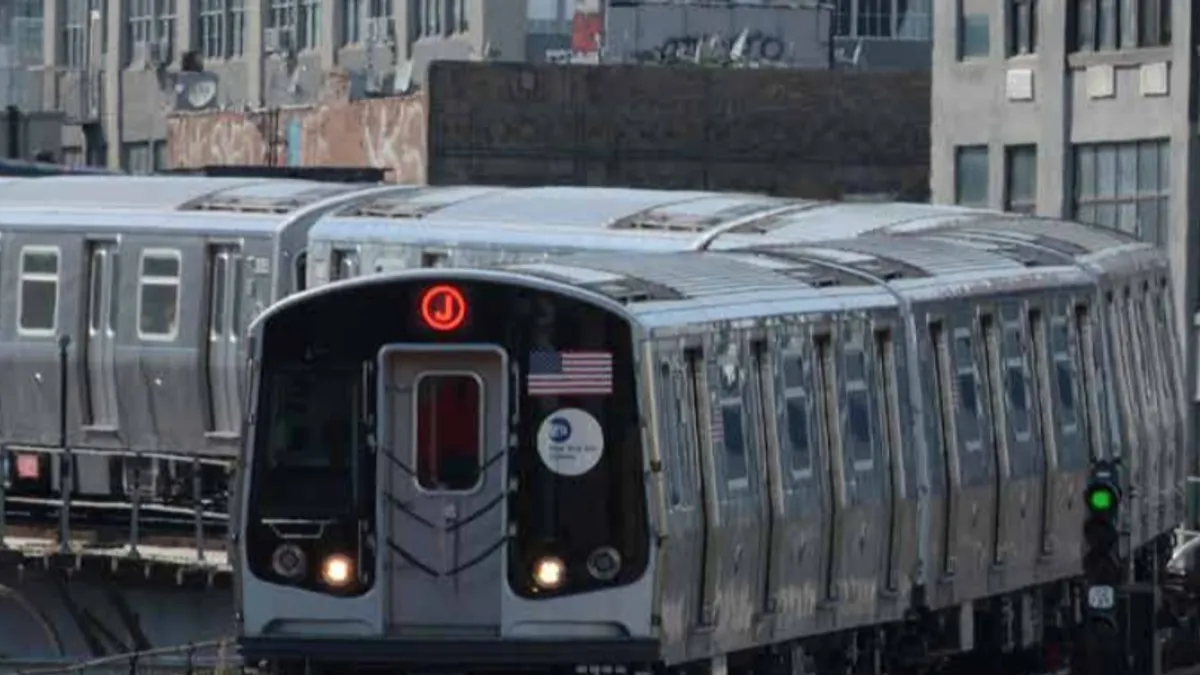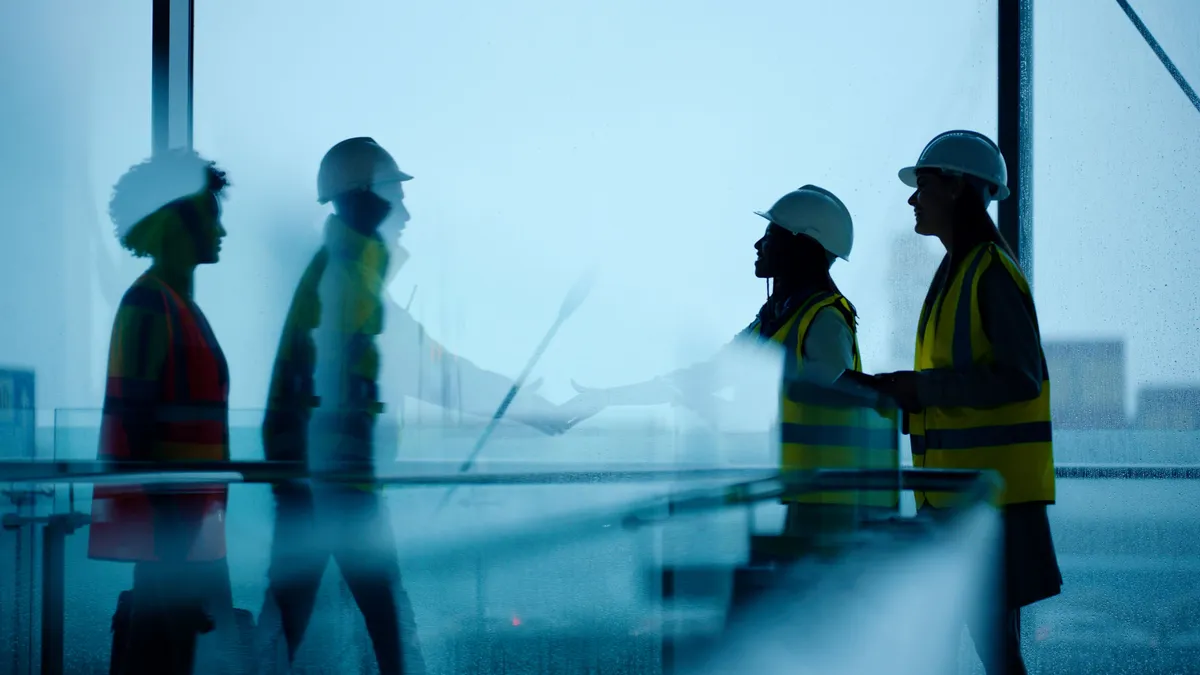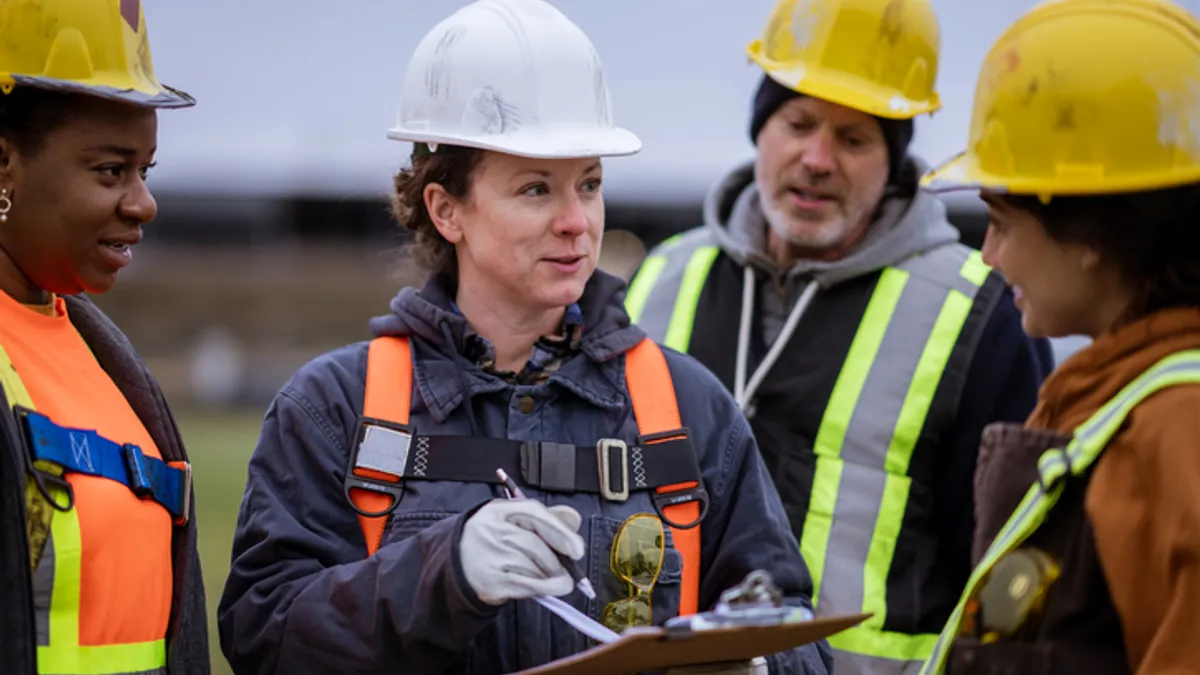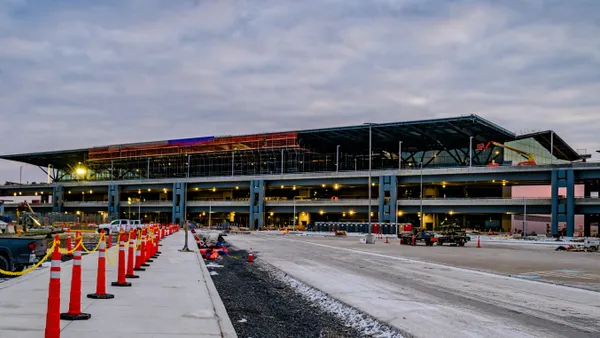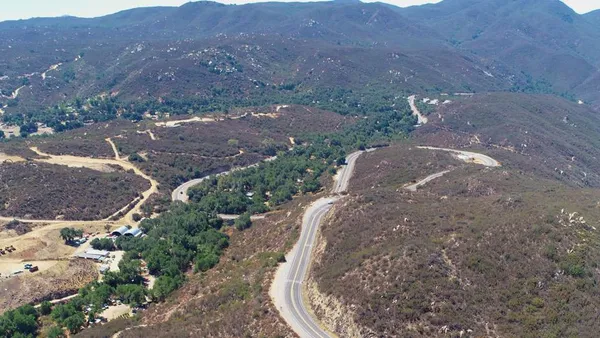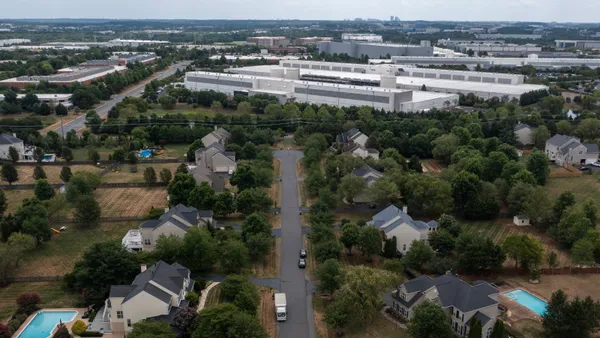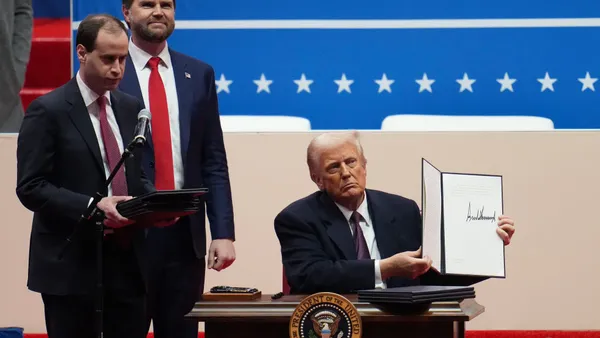Dive Brief:
- Metropolitan Transportation Authority New York City Transit President Andy Byford proposed a 10-year modernization of the city's transportation systems, a schedule that has been reduced by 75% from the agency's previous timeline of 40 years. The revised plan's costs have been estimated at between $19 billion and $37 billion, depending on various news outlets' sources.
- Within five years, the Fast Forward Plan would see a new signal system installed on five subway lines; approximately 50 new subway stations made accessible and repairs made to 150; the addition of 650 new subway cars and more than 1,200 modified with communications-based train control (CBTC); a citywide redesign of bus routes; 2,800 new buses and a new fare payment system. Within 10 years, the new signal system would encompass 11 subway lines; more than 130 stations would be accessible; a total of 300 stations would have undergone repairs, and New Yorkers' daily commutes would be made easier by 2,100 new buses and more than 3,000 new subway cars.
- The success of the Fast Forward Plan, according to transportation officials, is reliant on the ability of MTA to secure the necessary funding, obtain expedited permits and reviews, control costs and deliver projects on schedule and within the budget. The plan, according to The New York Times, still must win approval from the MTA board and New York Gov. Andrew Cuomo.
Dive Insight:
In order to achieve successful delivery of the Fast Forward Plan, the MTA is going to have to overcome the obstacles that have prevented it from previously bringing in projects on time and on budget.
According to a 2017 Times investigation, New York City subway construction costs are the highest in the world. This, according to The Times, is due to inflated union wage rates, pricey construction bids from politically-connected contractors, consultant agreements for more design and management services than necessary and overall mismanagement. In one example, a union with members working on the East Side Access tunnel secured a $111 wage-benefit rate, which ballooned to $400 per hour on the weekends.
The agency's East Side Access tunnel project serves as a stark example of this agency trend. The future Long Island Rail Road connector to Manhattan's Grand Central Station is now expected to cost $11.2 billion, on track to meet total cost projections of $12 billion, or $3.5-billion-per-mile. This is more than $1 billion in excess of 2014 estimates and about $3 billion more per mile than it costs other U.S. states and foreign countries to execute similar projects.


